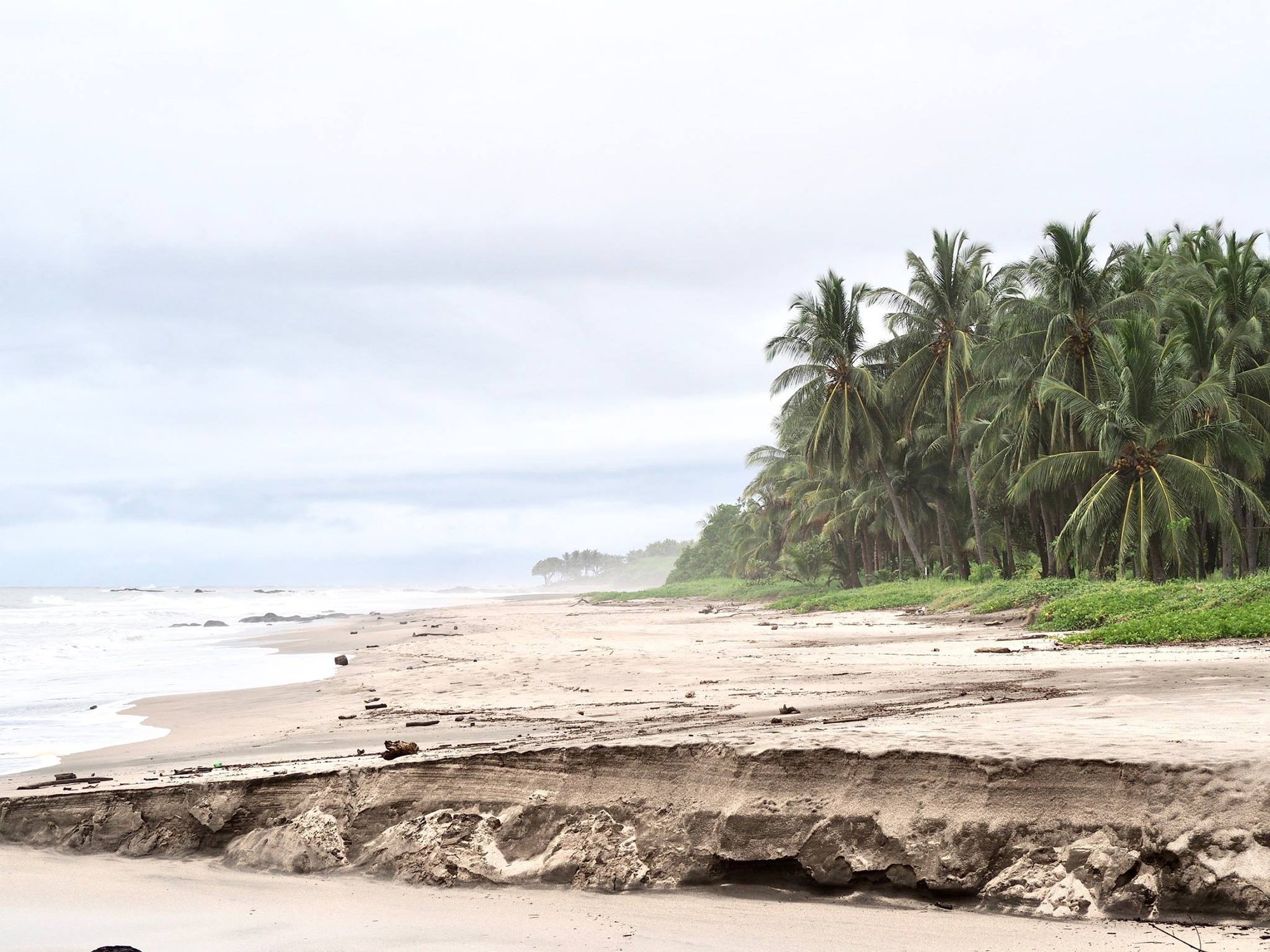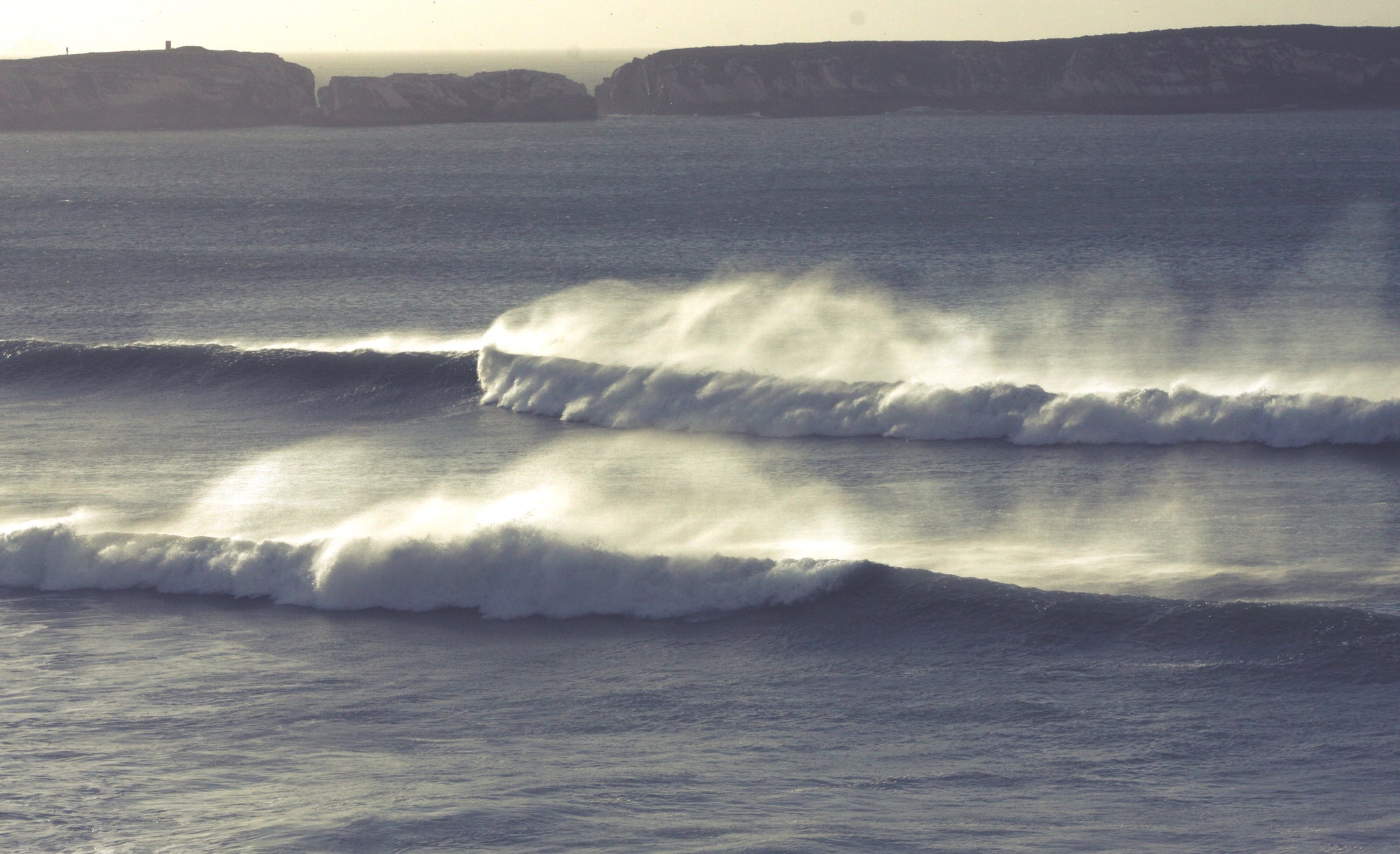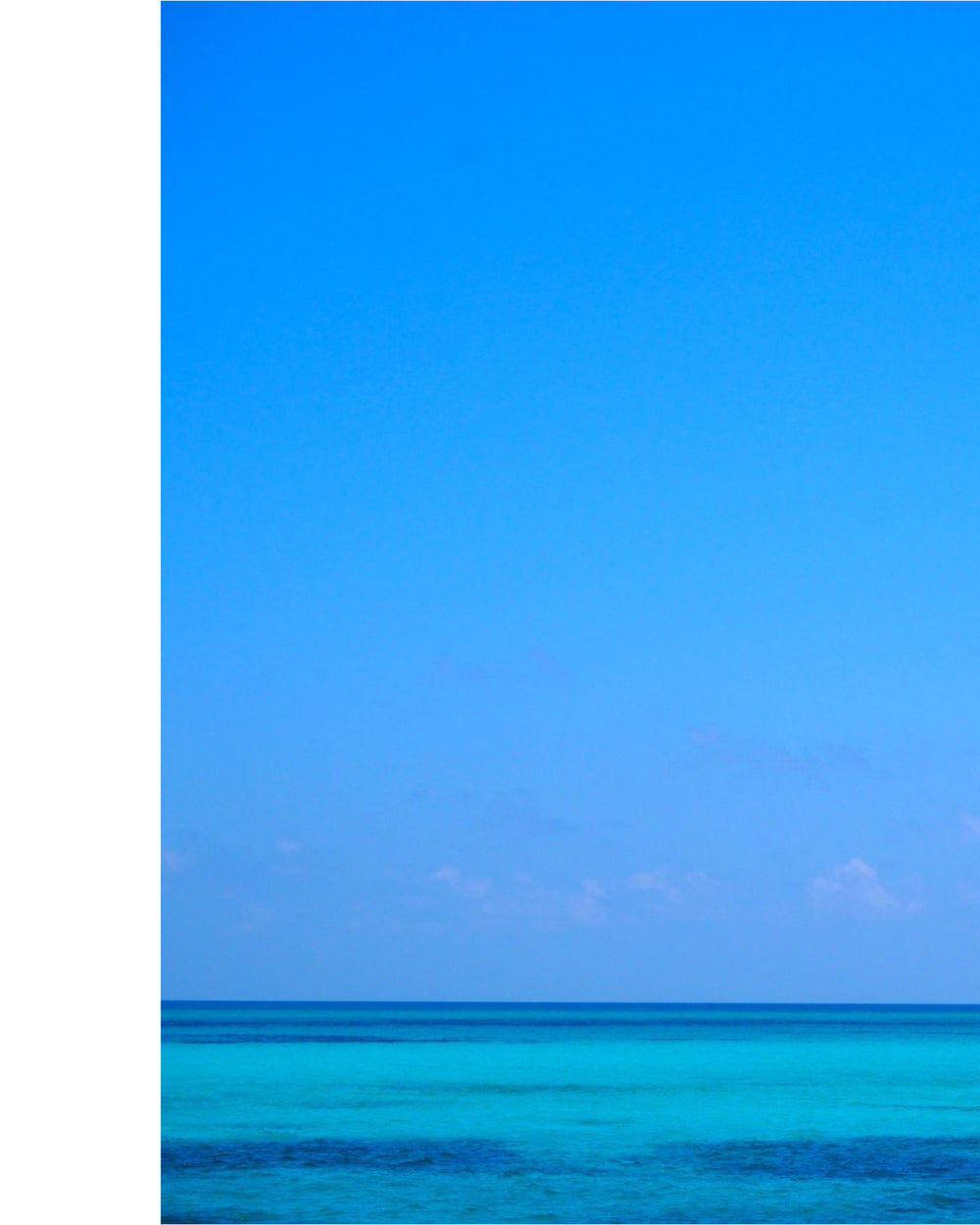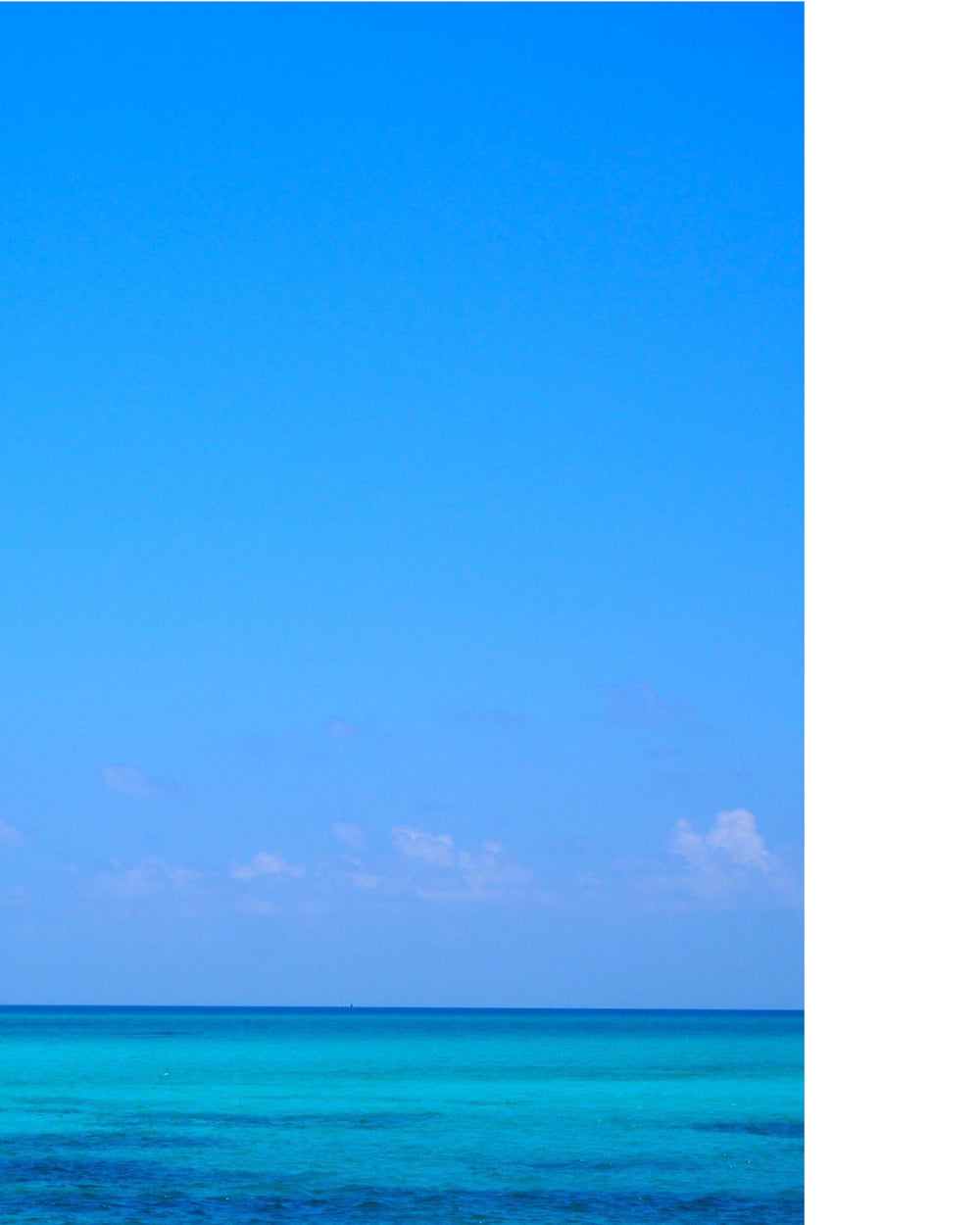Chapter 1 / Sharing Stories
A Blue Mind
Words by: Steph Baker
Photography by: Steph Baker
For those born and raised inland, you might recall the sublime feeling of excitement and awe at seeing the ocean as a child. And unlike most childhood experiences that have lost the elation factor, like watching a slinky repeatedly fall down the same flight of stairs, the ocean is one of few childhood wonders that triggers an emotional reaction at any age. From the greatest outdoor playground imaginable to being a space for mental solitude from the perils of adulthood, bodies of water benefit us mentally and physically throughout life.
The immeasurable sense of peace created by the sound of lapping waves and the smell of salt-filled sea air is your brain ‘on water’, a term coined by marine biologist Wallace J. Nichols in his study of water’s influence on the psyche. Being immersed in aquatic environments (not only the ocean but lakes, rivers, pools or even just taking a shower or bath) prompts what Nichols describes as the ‘Blue Mind’ effect; the healthy mind-state we enter when we are in, on or around water.
ESCAPING OUR RED MINDS
Blue mind can only exist in contrast to another state of mind. Consider the modern world we live in today. The demand for our immediate attention from social media, work emails, breaking news and advertising reach us 24 hours a day through our smartphones and computers. Being constantly switched on and digitally engaged, contributing to a whole cocktail of mental health concerns, is what Nichols describes as a ‘red mind’ state. Even when we feel like we’re not switched on outside of work and beyond the screen, just walking down a busy urban street has proven to induce stress hormones. Our minds process thousands of sensory parts of information every second (traffic noise, roadworks, people) which becomes mentally exhausting, fast. Bodies of water are increasingly being used as a mental refuge from the sensory overload of information from modern life - here’s why.
Water and stress
When we are in the presence of a body of water (the sea, a lake, a river), our brains are only processing simple, clean images and sounds. If you’ve ever googled sounds to help you fall asleep, study or relax, you’ve likely been recommended millions of playlists featuring breaking waves on a sea shore, a trickling forest stream or rain drops on a shingled rooftop. The repetitive sounds of water are a form of white noise, soothing the mind and distracting us from rumination. The experience also produces dopamine, the same chemical responsible for the high we feel when we eat great food or hug a loved one.
Even the color of water plays an important role in stress reduction. As the world’s most favored color amongst men and women, blue is associated with feelings of calm, serenity, and tranquility. Commonly used worldwide to decorate hospitals, therapy rooms and offices, lighter shades of blue have the ability to lower blood pressure and reduce anxiety. The hazy, expansive blue hues of the sea and sky are associated with feelings of freedom and limitless, boosting the imagination and creative mindset.

Water and awe
Water-based activities are being encouraged to treat symptoms of depression and stress disorders. War veterans suffering with PTSD are being prescribed surf lessons and scuba diving therapy over medication - and for reasons beyond the high of catching a barrelling wave in Hawai'i. Immersing yourself into a vast natural space, whether it be sailing the pacific ocean or standing amongst the Himalayan mountains, induces feelings of awe.
Nature-induced awe often leads to feelings of being very small. The shift in attention from ourselves and onto something greater and more powerful than we are makes us feel humbled, shrinking the ego and even encourages prosocial behaviour with others. This, in turn, reduces our focus on inner stress-related issues and helps us think more rationally, with a wider and more open-minded perspective. So, the next time you’re feeling ant-like amongst the big blue, or spiralling into existential angst staring into the milky way - remember that, in a roundabout way, it could be making you a better person.
Water and creativity
Ever wondered why an abundance of artists live by the sea, or on islands? Being around water is said to encourage creative and innovative thinking. If you’ve ever had an epiphany in the shower or bathtub, you’ve experienced this. And yes, it’s got something to do with your brain having a break from everything else.
Nichols explores the neuroscience of how watching the surface of water sparks creative thought. ‘In a natural environment on or near water, there’s a high degree of predictability’, states Nichols, ‘unlike a busy street, a body of water is largely the same from moment to moment, allowing part of the brain to relax.’ However, it is the repetitive sight of waves or ripples on the water that provides a gently entertaining and meditative stimulus for the mind. ‘Because bodies of water change and stay the same simultaneously, we experience both soothing familiarity and stimulating novelty when we look at them’, says Nichols. This kind of mindless yet stimulating focus triggers a part of the brain responsible for creativity and problem solving. You may agree that when we’re not really thinking about much (taking an aimless walk, or a shower) we have the odd eureka moment.
"A cruise in the sea, is an excellent opportunity for maximum calm and reflection on ideas from a different perspective,” Albert Einstein
Albert Einstein was an avid sailor. He often took his small sailboat out on doldrums, when the water was still and without wind, and jot down ideas about the universe. It was his days spent aimlessly out at sea, he claims, that he observed the workings of the universe, leading to findings that would later revolutionize science.
So, if you’re stuck for originality - take a walk to your nearest water source, natural environment or even hop in the shower. But don’t think too much about the intentionality of doing it, of course.
"A cruise in the sea, is an excellent opportunity for maximum calm and reflection on ideas from a different perspective."

Water and the environment
Our affinity for water can also be explained from a primal perspective. Freshwater sources like rivers and lakes are key to human survival for drinking and cleaning, whilst the ocean provides food sources and acts as a portal for migration. It’s also within our instinctual nature to protect what ensures our survival. Although we may have lost a leisurely appreciation for the water years ago (from antiquity up until the 18th century, the ocean was associated with danger and was rarely used recreationally), we are now reconnecting with the ocean through once unimaginable hobbies. Water-based pursuits such as scuba diving, surfing and ocean swimming are encouraging pro-environmental behaviours globally. Surfer-driven environmental non-profit organizations, including Surfrider and Surfers Against Sewage, lead effective strategies to combat issues such as ocean plastic pollution worldwide. Mission Blue, led by legendary diver Sylvia Earle, are fighting to protect marine life by securing global marine protected areas.
Our rapidly growing habitation of inner city homes and indoor workplaces makes it easy for us to disconnect with nature. Having a connection with your closest body of water, whether it be a lake, pond, river or sea, is vital for its protection. Doing your part to protect a local water source doesn’t just mean volunteering with your local environmental organization for those constrained by time (but no discouragement here - this is one of the best things you can do). Small, everyday individual actions such as picking up litter on the beach, wearing an eco-friendly sunscreen before a swim, and reducing your everyday plastic consumption will all have profound effects on our water if we act together.


Your water
We don’t all have the luxury of living by the ocean, so gaining the benefits of water regularly isn’t easy. It’s even a treat for many who do live on the coast but have a demanding schedule, sacrificing time for personal welfare. To maximize relaxation and restoration for your next vacation or weekend break, keep water in mind. Whether it be a coastal, lakeside or riverside location, be mindful to spend some time doing activities that involve the water near you. Swimming, surfing, paddle-boarding, kayaking, even strolling around a lake, will aid you in ways beyond physical fitness.
Immersing ourselves in nature opens our minds and encourages a sense of freedom, an experience rarely obtained in day-to-day life. And when we feel a sense of freedom, we become more conscious. Being conscious means gaining an awareness and respect for our environment, our situation, and ourselves.
Reengaging with the wondrous power of water on our minds and bodies will inherently make us care more to protect it, because looking after our water means looking after ourselves. With everything that the water gives us - food, health, creativity, serenity - it’s time to give our waters something back.